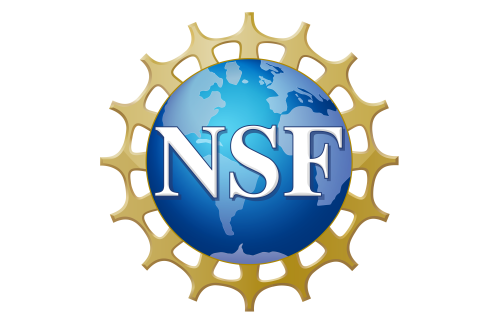All About Oysters: Outreach Workshop
What are those slimy, squishy invertebrates? This workshop includes an oyster dissection and introduces students to shellfish, their unique biology, and their challenges to survival in diverse marine environments. You will dissect a live oyster collected from the US Atlantic and Gulf coasts and locate such features as the gills, digestive tract, and gonads! We will then learn how to measure ocean salinity using a refractometer and discuss how oysters can adapt to rapidly changing marine habitats.
This work was developed with support from the National Science Foundation. 
Powerpoint Slides
- Please email Madeline for sharing permission if you’d like to edit!
- Many slides have speaker notes at the bottom.
Participant Worksheet
- This worksheet is designed to be distributed to each student. Students will fill in their observations for each section, following closely with the powerpoint slides.
- Note: oyster anatomy image may print better in color than black and white, but the same image is also in the powerpoint.
Materials Needed for a 20-student workshop
Dissection Activity, set up 10 stations with 1 item each. Students will work in pairs.
- 10 oysters, ideally split between 3+ locations (ex. Gulf of Mexico, SE Atlantic, NE Atlantic). Change activity 1 in the slides if all oysters are from the same region with no observeable phenotype differences.
- 10 plastic trays
- 10 shucking knives
- 10 tweezers
- 10 dissection scissors
- 10 microfiber towels
- 10 callipers
Protective Equipment/Gloves, set at the front of the room for students to grab as they walk in.
- 1 box each of S, M, and L surgical/lab gloves
- 10 pairs of rubber protective shucking gloves (check that you have S/M/L all available)
- 10 pairs of field work protective gloves (these have fabric on the top of the hand and rubber on the fingers + palms)
Seawater Activity, set up in the back of the room or other side area.
- 3 to 6 refractometers
- 1000 mL full salinity seawater, aim for ~32-35 ppt. Adjust concentrations in slides if necessary.
- 500 mL fresh water 0 ppt
- 9 250 ml glass jars
- 9 plastic pipette droppers
- Food coloring or colored tape to ID each jar of water
Teaching Materials
- 20 printed worksheets
- Lots of pens/pencils
Cleanup
- Large Trash bags
- Roll of paper towels
- 3 large field work buckets (used to make trash cans and transport materials)
- Bottles of low concentration bleach for cleaning trays
- First aid kit, good to have on hand for small cuts from tools
Presentations
We last ran this workshop at the Annual High School Marine Science Symposium in the spring of 2023! - Link to News Article

IMG_6905
